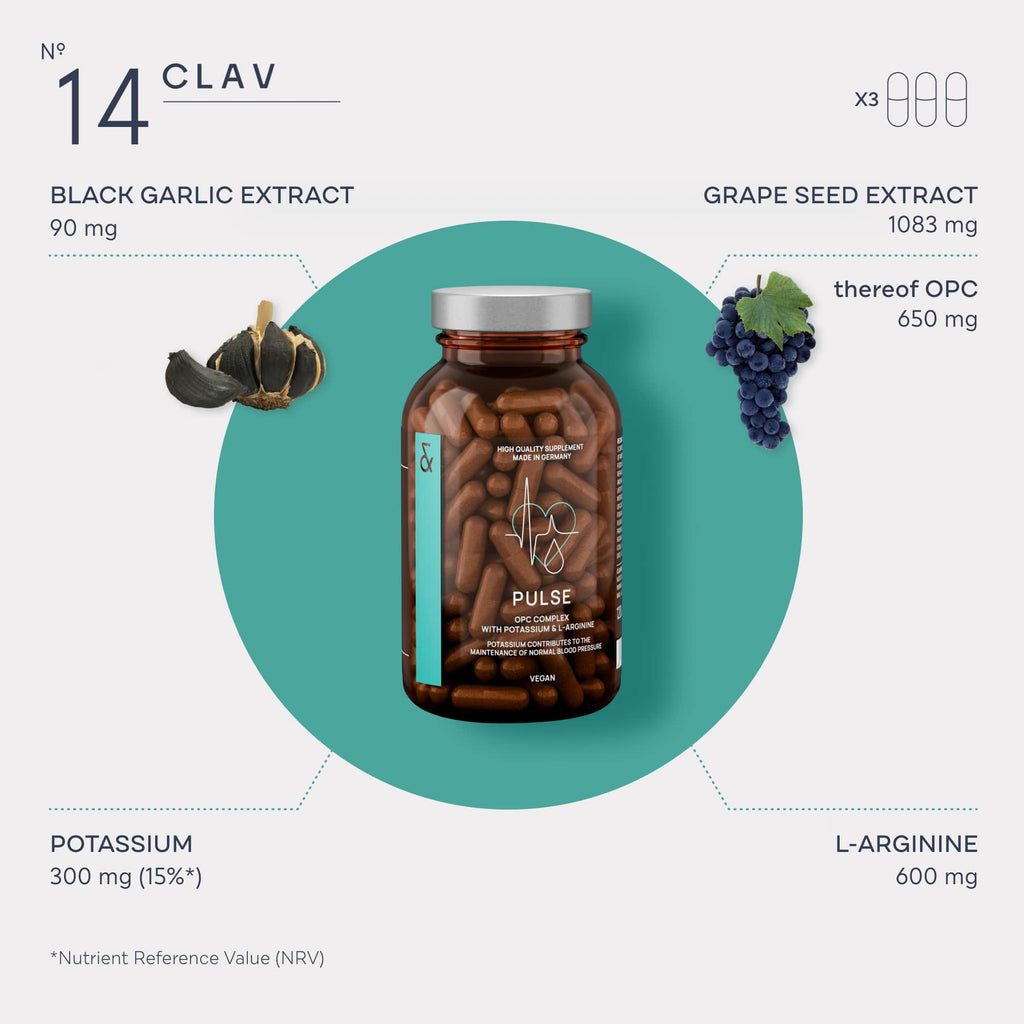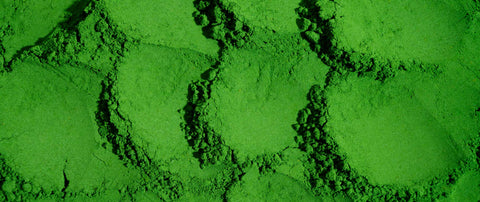Our cardiovascular system is considered the "engine" of our body. It works around the clock without pause to ensure that every cell in our body is supplied with oxygen and nutrients. Unfortunately, certain factors such as excessive stress, an unhealthy diet or a lack of exercise can cause this engine to become unbalanced, which in turn affects our quality of life. But don't despair: even small changes in your daily routine can help to strengthen your cardiovascular system. In this blog post, we delve into the world of heart health and provide you with tips to help you on your way.
Inhaltsverzeichnis
How does the cardiovascular system actually work?
When we think about heart health, we may not immediately consider how important this organ actually is. But the heart is considered the engine, the energy centre of our body. You can think of the heart as a kind of pump that transports blood throughout the body and ensures that our cells receive the oxygen and nutrients they need. As exertion increases, the demand for oxygen rises and the heart begins to beat faster. During rest periods, however, the pulse slows down to conserve energy – a rather sophisticated mechanism, isn't it? Nature knows what it's doing, and the cardiovascular system adapts to your situation and is active every second, every minute, day and night.
To make the functioning of the cardiovascular system easier to understand, let's take a closer look at the subject: if you know anything about medicine or the anatomy of the body, you probably already know that blood is transported through the body via a huge network of blood vessels, including arteries, veins and capillaries. There are two types of circulation: pulmonary and systemic. Pulmonary circulation refers to the blood travelling from the heart to the lungs, where it is supplied with oxygen and then transported back to the heart. Systemic circulation, on the other hand, brings oxygen and nutrients to all the cells in our body. At the same time, carbon dioxide is also removed – so much for that. However, problems arise when the cardiovascular system no longer functions as it should. Among other things, this can result in important organs no longer being supplied with sufficient oxygen or even an increased risk of heart attack or stroke.
The good news is that in many cases this can be avoided, because cardiovascular problems are often – but not always – the result of an unhealthy lifestyle, such as poor diet, smoking or lack of exercise. Of course, there are also congenital defects that can cause heart disease. However, we do not wish to discuss these in this article, as they require medical treatment only.
Unfortunately, the majority of the population in the UK does not eat a particularly healthy diet, and sugar and fast food consumption is on the rise. As a result, cardiovascular disease is now considered a widespread disease. Other stress factors such as stress, lack of sleep and so on are also very prevalent in our society.
How can I tell if I am affected?
There are several symptoms that indicate problems with the cardiovascular system. However, as with other diseases, these symptoms can have other causes and should always be urgently clarified by a doctor. Symptoms include:
- Pain in the chest area
- Shortness of breath
- Weak pulse
The situation becomes more serious if symptoms such as loss of consciousness or acute shortness of breath occur. In this case, you should seek medical help immediately.
How you can consciously support your cardiovascular system
As already mentioned, lifestyle plays a very important role. It can help to make a significant contribution and alleviate inflammation in the body. In addition, a healthy lifestyle stabilises blood pressure and strengthens heart function in general. But what constitutes a healthy lifestyle and how can you strengthen your body? We have summarised the most important points for you:
Nutrition
A balanced and nutrient-rich diet is the first thing we should change if we feel that our body is not doing well. Fast food, sweets and highly processed products with too much salt and sugar should be banned from your diet, at least for the most part. Of course, you can treat yourself to something now and then, but these should only be exceptions. Instead, we recommend whole grains, protein-rich foods, legumes, fibre and, of course, fresh fruit and vegetables. Healthy fats such as linseed oil, olive oil or chia seed oil etc. are also very beneficial because they contain omega-3 fatty acids. However, too much omega-6 fatty acids can promote inflammation. So here's what you can eat to support your cardiovascular system:
- Garlic
- Turmeric
- Cinnamon
- Berries
- Citrus fruits
- Fish such as salmon and herring
- Nuts and seeds
- Legumes
- Green tea
- Water
Exercise is essential
You probably hear it all the time: "You need to exercise more!" or "Exercise is the key to a healthy life!" But as exhausting as it may sound at first, these statements are true! Exercise stimulates the metabolism and blood circulation, regulates blood pressure and strengthens the heart muscle. Cardio training sessions are particularly good for supporting the heart. These include sports such as Nordic walking, jogging, swimming or cycling. Moderate strength training without too much effort is also suitable, as too much effort can cause stress to the body and release the stress hormone cortisol, which would be counterproductive in this context.

Do you need to join a gym for this? No! With small everyday tips such as taking the stairs instead of the lift, going for short walks after meals or simply walking one stop on the bus, you can give your body a huge boost!
Stress as a risk factor
Stress is harmful in many ways – that much is certain! It increases blood pressure and, if it is prolonged and intense, can also promote inflammation. This can lead to diseases, especially autoimmune diseases, developing in the body. Therefore, try to reduce stress as much as possible and give your body a break in such moments. I know it's easier said than done, but it's important to learn to listen to yourself and take action when necessary. If you need some
help getting started, here are a few tips and techniques for achieving greater calm:
- Breathing exercises
- Meditation
- Yoga, Pilates
- Forest bathing
- Regular walks
- Aromatherapy
- Setting priorities
- Time management
- Wellness trips
- Pay attention to your sleep quality
- Fixed routines
- Reduce your screen time – especially before going to bed
Support from nature
In addition to a healthy lifestyle, more and more people are turning to dietary supplements that are specifically designed to meet the needs of the cardiovascular system. Many herbal remedies, such as black garlic, have been used in Asia for centuries to strengthen the immune system and promote blood circulation. OPC and L-arginine are also excellent supporters of the cardiovascular system. We would like to share two exciting studies on this topic with you:
OPC
A study conducted in 2002 investigated whether proanthocyanidins from red grape seeds have cardioprotective effects. Proanthocyanidins are secondary plant compounds that are associated with antioxidant activity. OPC (oligomeric proanthocyanidins) is a special form of proanthocyanidins.
In the study, two groups of rats were given different doses of a proanthocyanidin-rich extract for three weeks, while another group remained untreated and served only as a control group.
The results showed that proanthocyanidins from grape seeds were able to protect the heart when blood flow was restored after oxygen deprivation (ischaemia). This is because free radicals in the heart muscle can be neutralised or reduced, causing less damage to the heart.
Although this study was conducted on rats, these mammals have a cardiovascular system that is similar to ours in many fundamental ways. Therefore, these results may provide important clues about the possible cardioprotective effects of proanthocyanidins in humans as well. Of course, specific studies in humans are also necessary to confirm the applicability of the results. 1
L-arginine
To investigate the effectiveness of L-arginine on blood pressure, a meta-analysis was conducted that took a closer look at numerous studies. A total of 11 studies were included, in which oral supplementation of L-arginine ranged from 4 to 24 g/day. Compared to placebo, L-arginine significantly reduced systolic blood pressure by 5.39 mmHg and diastolic blood
pressure by 2.66 mmHg. There was also evidence that people with higher baseline blood pressure could benefit more, but this association was not statistically significant.2
Anzeige

Overall, it can be concluded that supplementation with OPC and L-arginine is a good option for providing additional support to the cardiovascular system. Our product N°14 PULSE combines OPC and L-arginine with potassium, which helps maintain normal blood pressure, black garlic, which is known for its antioxidant effect, and ginseng extract, which is said to improve blood circulation and regulate blood sugar and blood pressure.
Conclusion
If you already suffer from cardiovascular problems or want to support your body preventively, you should first and foremost change your lifestyle. Although a healthy lifestyle is no guarantee, it can certainly help to strengthen the body and the organism and prevent potential diseases from developing in the first place. A healthy lifestyle includes a nutrient- rich diet, low sugar and processed foods, plenty of exercise and avoiding smoking and alcoholic beverages. Supplements also offer a good option for natural support. If you are unsure about taking them or have pre-existing conditions, please consult your doctor beforehand.
Sources
-
Pataki T, Bak I, Kovacs P, Bagchi D, Das DK, Tosaki A. Grape seed
proanthocyanidins improved cardiac recovery during reperfusion after
ischaemia in isolated rat hearts. Am J Clin Nutr. 2002 May;75(5):894-9. doi:
10.1093/ajcn/75.5.894. PMID: 11976164.
-
Dong JY, Qin LQ, Zhang Z, Zhao Y, Wang J, Arigoni F, Zhang W. Effect of oral
L-arginine supplementation on blood pressure: a meta-analysis of
randomised, double-blind, placebo-controlled trials. Am Heart J. 2011
Dec;162(6):959-65. doi: 10.1016/j.ahj.2011.09.012. Epub 8 Nov 2011. PMID:
22137067.




 DE-ÖKO-006
DE-ÖKO-006
